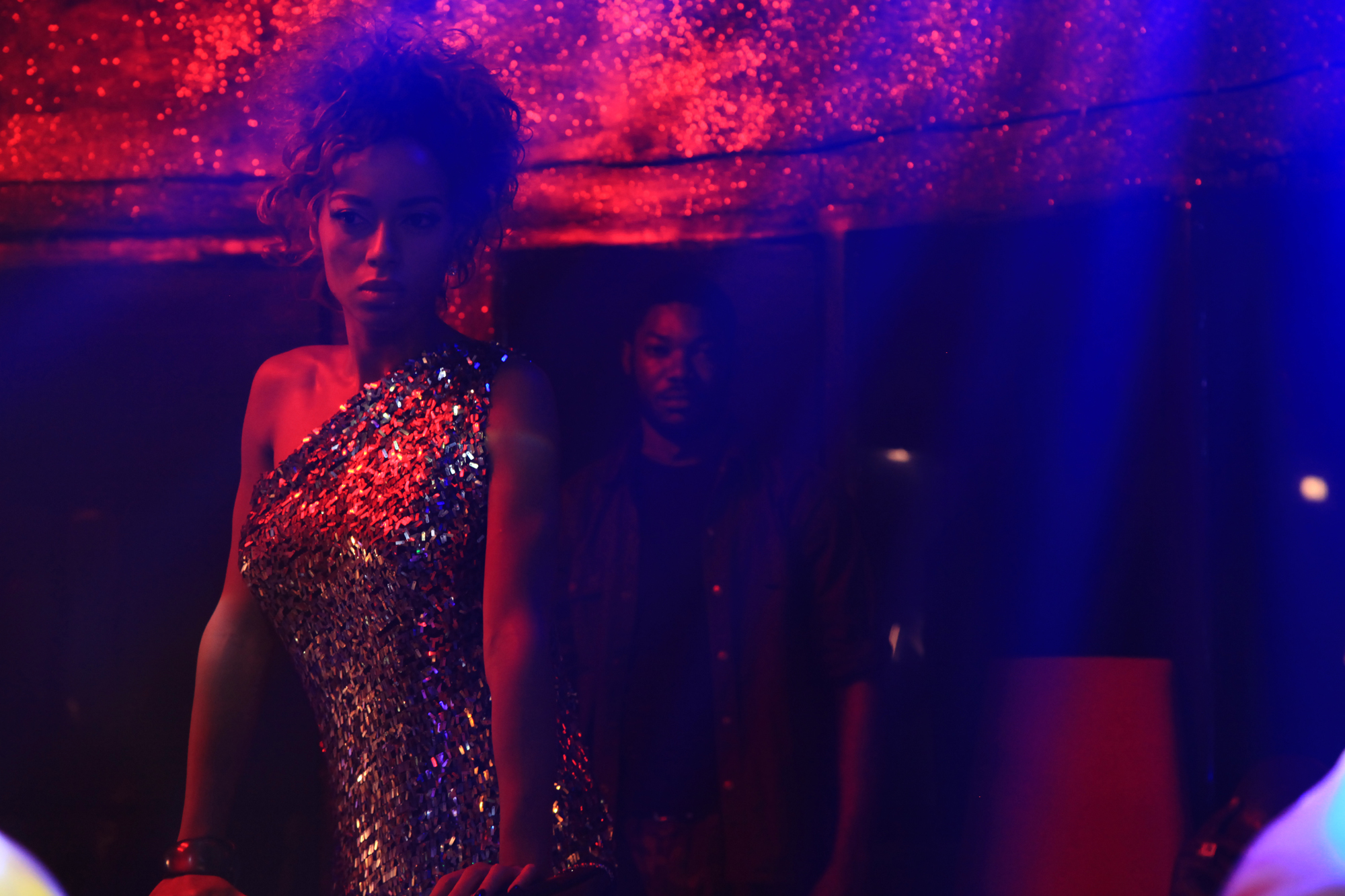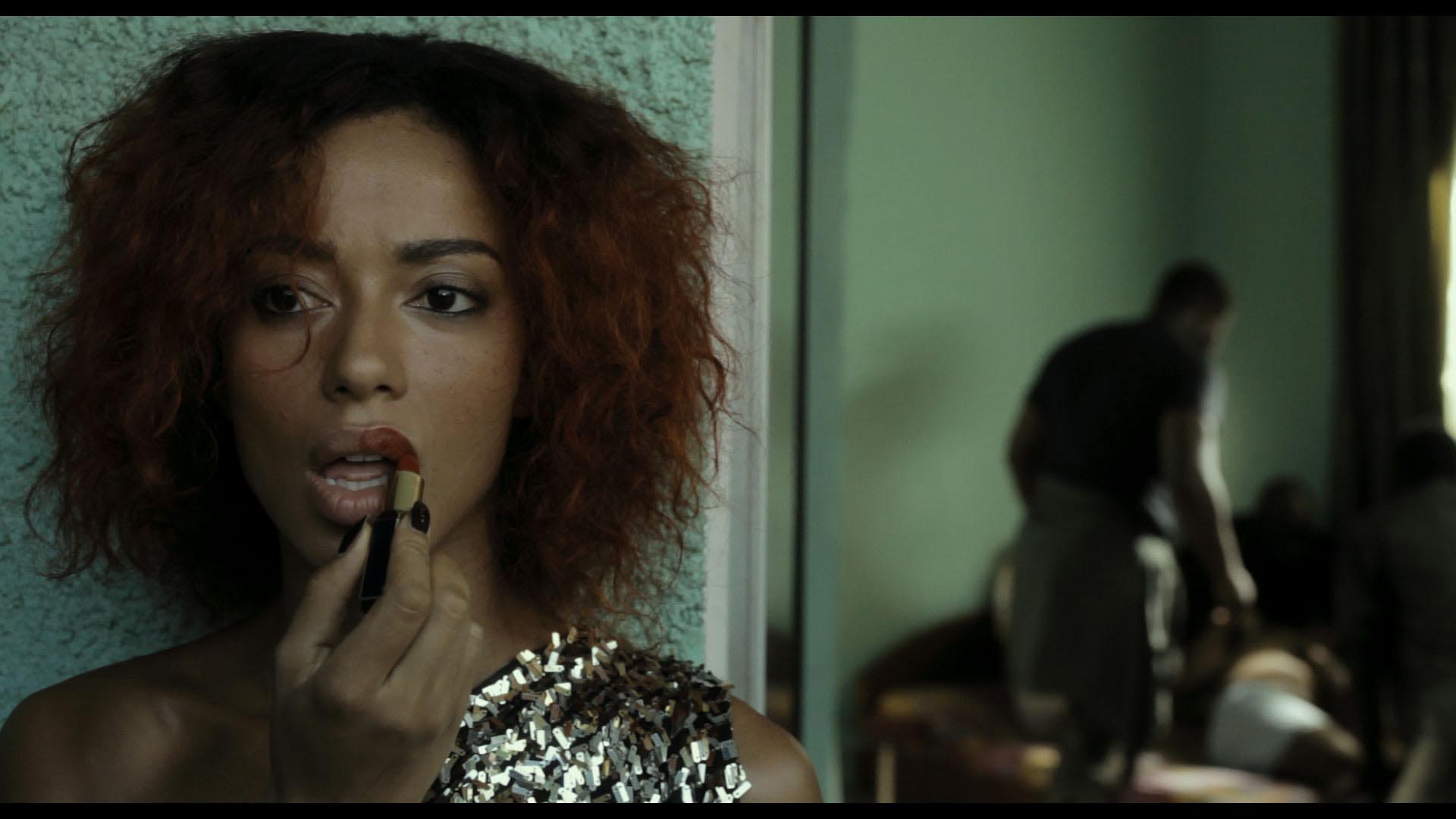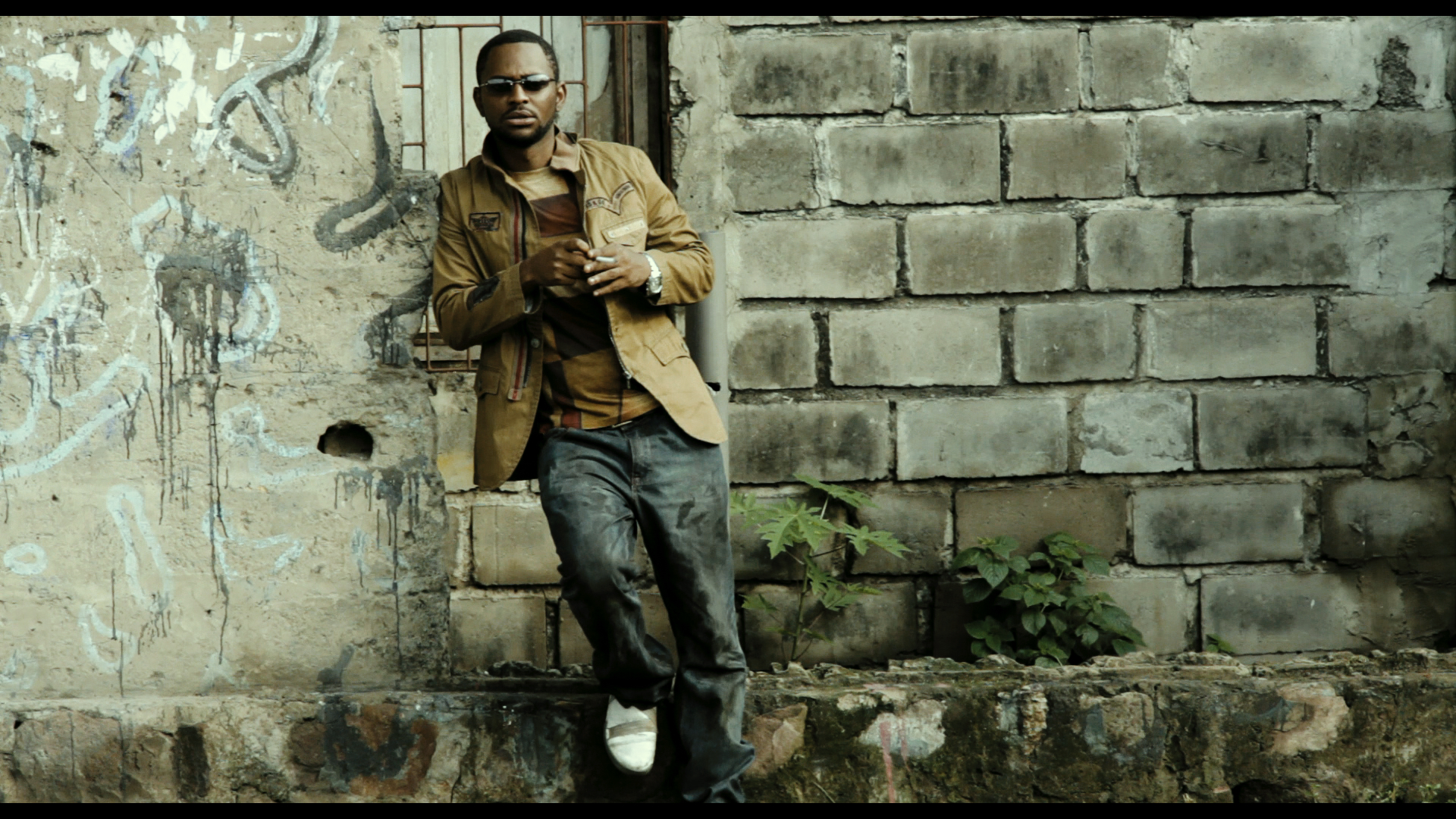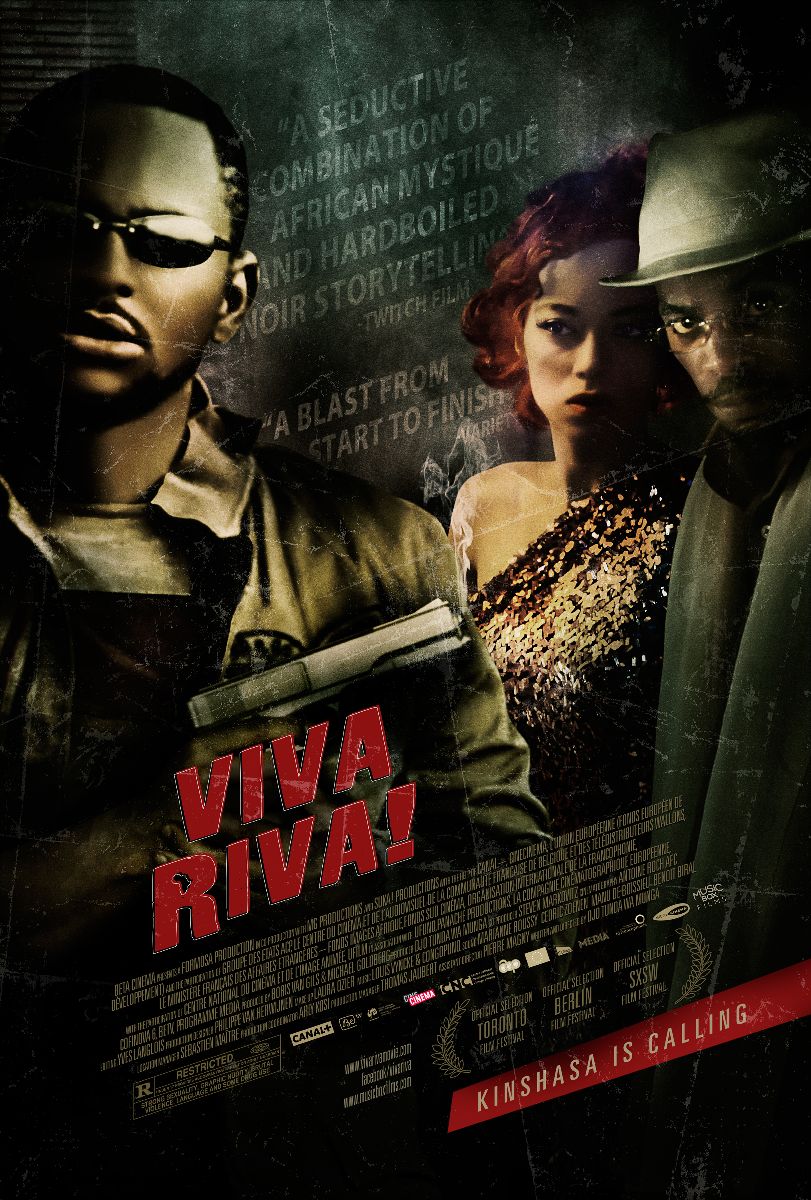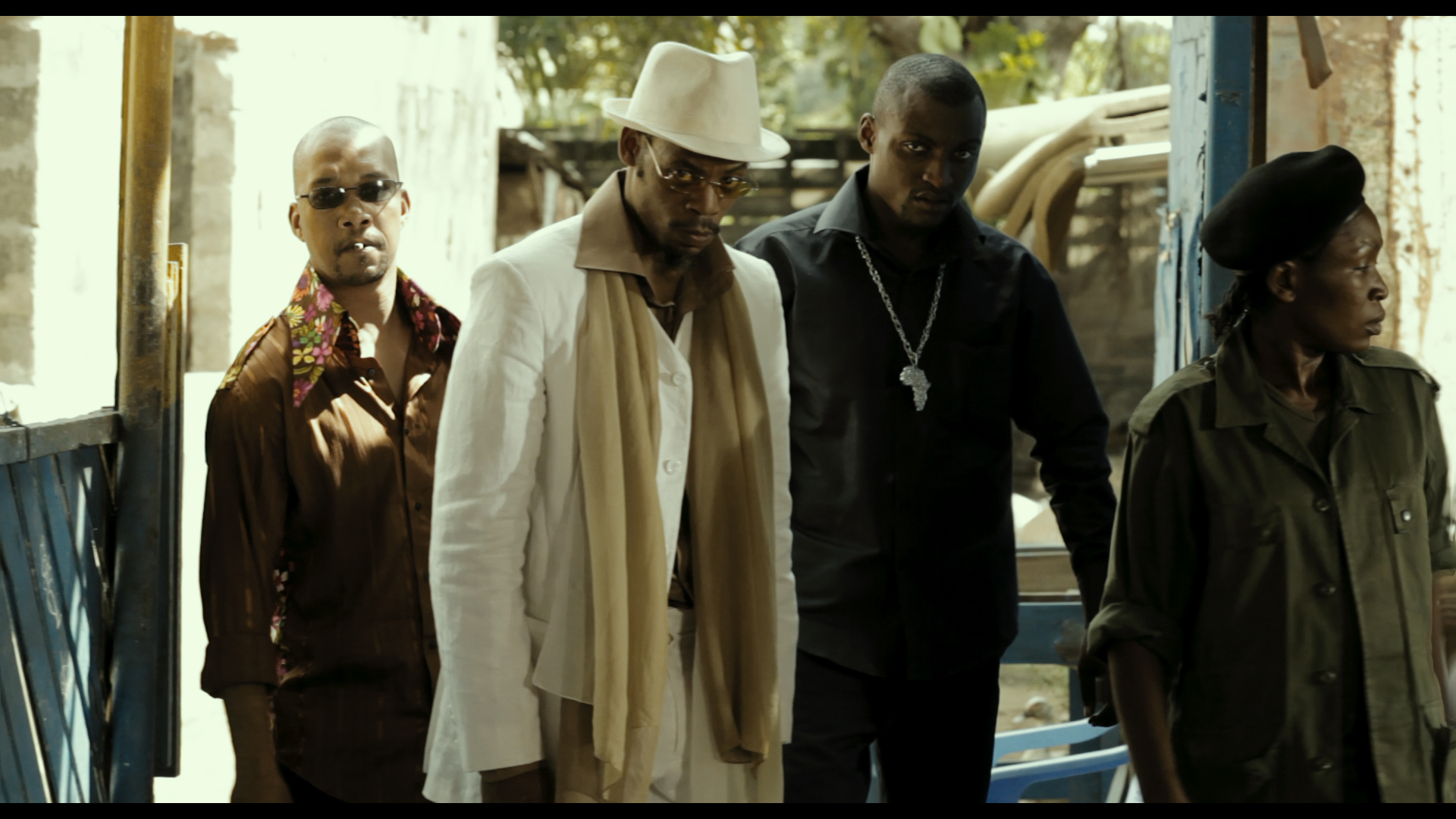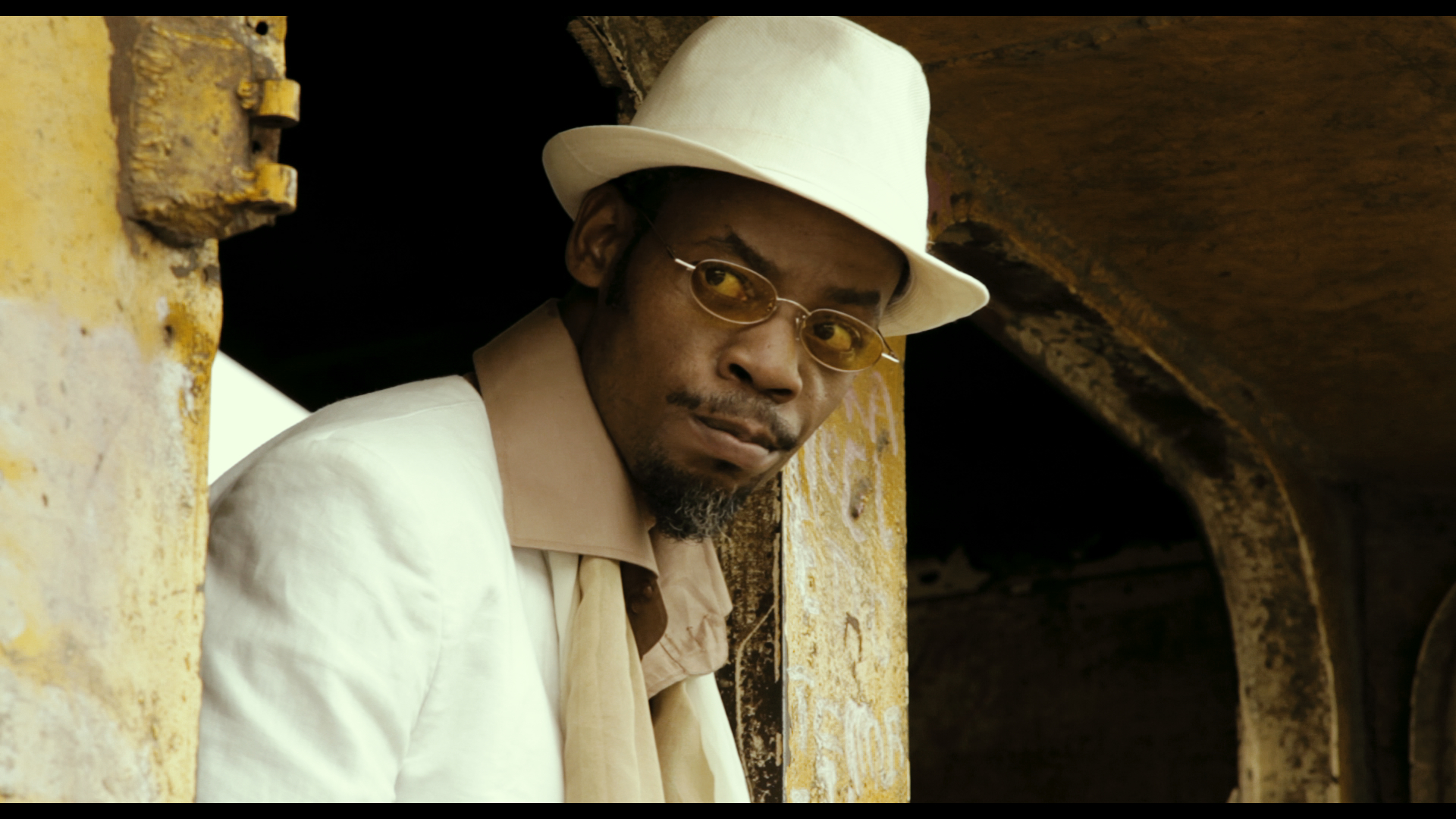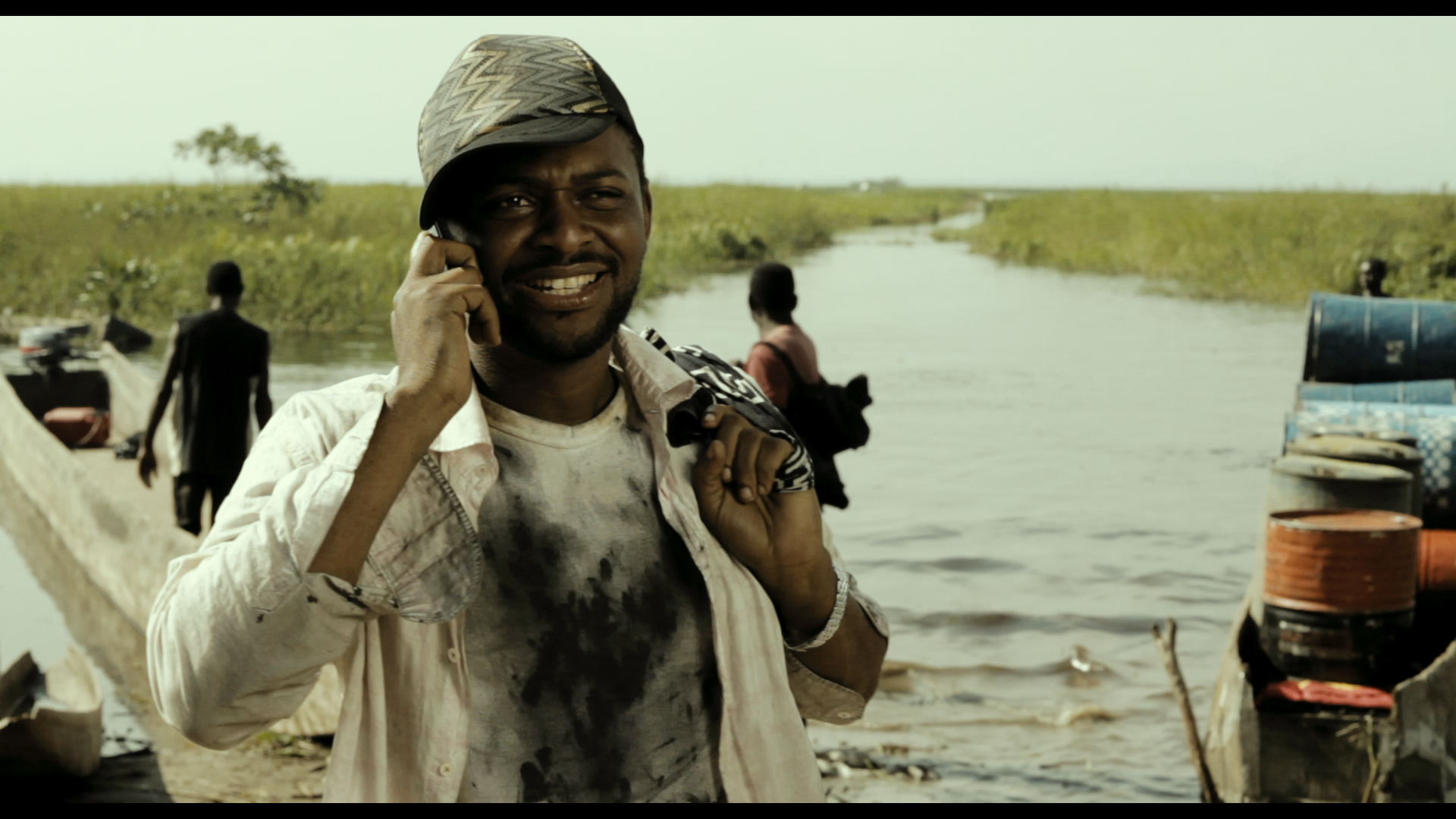Interview: ScreenAnarchy talks exclusively to VIVA RIVA! director Djo Munga
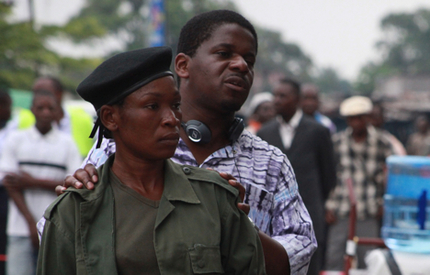
One of the most exciting discoveries of the year, the slick, violent and seriously sexy crime flick from Congo, VIVA RIVA! is coming to the US. The film scooped six prizes at the 2010 African Academy Awards, including Best Film and Best Director and opens in New York and Los Angeles on June 10, before spreading out to selected cities across the country in the following weeks. I guarantee it will blow apart any preconceptions you may have of African fimmaking. Through the powers of the interwebs, last week I was able to chat with writer-director Djo Tunda Wa Munga about being an adolescent film fan in war-torn Zaire, how he was able to produce Congo's first feature film in 20 years, and his future plans to make the ultimate Africa/Asia gangster epic!
JM - VIVA RIVA! blew me away. It's exciting, sexy and stylish in a way I didn't expect from a film from the Democratic Republic of the Congo. It's clearly made by someone who knows & loves movies. As someone born and raised in Kinshasa, tell me about the films that you saw growing up.
DM - It's probably difficult for people to imagine, Kinshasa in the 70s was very different. There were two theatres in my neighbourhood, so I used to watch a lot of films. These were mainly Westerns - Sergio Leone's movies, Django and all these guys. Also we had kung-fu films, a lot of Bruce Lee and all that genre. And of course we had a few French movies, but I don't really remember them. Also King Kong and these Japanese things like Godzilla, they were really important.
JM - So there was no chance of you ever making romantic comedies then?
DM - [Laughs] I didn't think about it at the time, but you know, in a dictatorship like Zaire (as the DRC was known between 1971-1997) you basically had gangsters running the country, so there's probably a certain mindset that identifies with gangsters and violence rather than with romance or comedy. That's probably why SCARFACE is one of the most popular films in Africa, even 30 years after its release, because people relate to that world.
JM - How old were you when you decided that this was something you wanted to do, or realized it was something somebody could do professionally?
DM - Oh it was not that easy. When I moved to Europe I studied at Art School and my aim was to become an oil painter or get into advertising or become a cartoonist. But one day I wandered into a filmmaking workshop, and I wouldn't say that I enjoyed it at that moment, but something happened. It was very difficult, as an African, to say to myself I'm going to make films for a living, and it really was at the last minute that I realized there was something important there. So then I applied to a film school in Brussels.
JM - When you left Kinshasa for Belgium, did you go alone or with your family?
DM - At the time people were aware that Mobutu (Zaire's dictator) wasn't putting any more money into education, and eventually the system collapsed. So, people who were Middle Class or Upper Class, like my parents, sent their children abroad to boarding school. So I went away for five years and my parents would visit from time to time. I arrived in Brussels in 1981, was at boarding school until 1986, started art school in 1988 and entered film school in 1993.
JM - Were you influenced in any way by the European style of filmmaking?
DM - [Laughs] No, not at all. Twenty years ago things were quite different. I'm not saying there were racial issues, but you would stick within your own community. You go to school, you have friends, but apart from that their wasn't really any connection to the French or European communities.
JM - So you found yourself living mostly with other African expatriates...
DM - Yes, exactly. But instead what I did was, do you remember the old videotapes, VHS? Back in the early 80s we had the first video club, at least in Europe, which was a little thing for specialists. We had all the horror movies, not so much the action, but the classic movies, which were available. So every weekend I'd go down there and chat with the guy and that's how I discovered Cronenberg and all the horror greats of the time, as well as interesting directors like Coppola, Scorsese and all these guys. So in terms of film and culture, my education was more through the cine club, and VHS was really important.
JM - So after you acquired your filmmaking education...
DM - Well I'm still not sure I feel qualified! I still have the same questions as I did 18 years ago when I started film school. I always hope that the next film will give me the answers but it never does really. But let's see.
JM - Weren't you tempted to head west to ply your trade as a filmmaker? What prompted you to return to the Congo, where there is no industry?
DM - I think it was the Toronto Film Festival, 10 years ago they had a section called Planet Africa and I had a short film playing there. When I came to Toronto and showed my film, which was a modest story about a little Congolese boy living with his sister in Belgium, I was really surprised how much the audience liked and understood the film. For me it was like that moment when you see the light, I realized that I could go back to Congo and make films there and enrich the international audience. Also, 2001 was a very difficult time in Congo because of the war, but there was this question of responsibility, in terms of at least trying to do something in Congo. We were supposed to leave, study, and then come back. That was the debate, and I decided to go back.
JM - When you returned and tried to get your project off the ground, what was the local reaction? Were people supportive or did they think you were crazy?
DM - People didn't really believe that it was possible, and I'm not the type of person to convince someone to do something if they don't want to. So I embraced it as a personal journey, but at the beginning it was not very successful. It was really tough, really difficult.
JM - Did you have any connections or people that you could go to for help and support?
DM - No, not really. I started work as a line producer in documentaries, so I did little jobs for Belgian television first, then I got a big job with the BBC. I made a film for them in 2003 about King Leopold (WHITE KING, RED RUBBER, BLACK DEATH about the Belgian monarch's acquisition and exploitation of Congo). After that, a Danish production asked me to work on something else and I entered into this world of making these historical movies, which were very interesting and I met great people. After that I kept working, I wasn't making a lot of money but that wasn't too important.
JM - Your background in documentaries is hugely evident when watching VIVA RIVA! and your ability to capture the local environment authentically. What was the response from the locals while you were filming on location?
DM - People were really easy, and sometimes I was even embarrassed because we were shooting in these very poor areas and people were inviting us into their homes to film. And I wanted it to be real, but you hit that point when you ask yourself do we really have to do this? Is this fiction or is it documentary? But they really made it very easy for us on all levels. Whether we needed a house or a car or when we were shooting the nude scenes - the women were asking me why I wanted to do it and I told them that the idea was to be as real as possible, to accurately portray our society today. Once they got that, it was easy.
JM - I imagine you used a lot of non-professional actors, real people playing characters similar to themselves.
DM - I tried to tell them to invent a character who looks like you and talks like you but is a bit different. There is also a culture of improvising, so we rehearsed a lot and they were changing dialogue so I used these changes and incorporated them into the script. So it's that combination - part of them, part of the script - and finding a chemistry that works.
JM - Some of your lead actors, like Patsha Bay (who plays Riva) and Manie Malone are already professionals. How did you find and recruit them for the project?
DM - I had many levels of casting. I hired a French casting director, who saw about 350 or 400 people maybe, and she selected 20 people. And that included most of the main cast of the film, except Manie, Patsha and the Commander was not there either. I bumped into Marlene (Longange), who plays the Commander, whom I knew from her theatre work, but she told me she had stopped acting because it was too hard. I invited her to the casting anyway, just to see if she was interested and of course she was great!
For Manie (who plays the film's femme fatale, Nora) it was more complicated. I was aware there might be a problem finding an actress in Kinshasa willing to do the things Nora does - or anywhere in Africa. I mean, the nude scenes and the violence, it's not usual. So I wrote the character as someone who could be foreign. Also, I couldn't find anyone in Kinshasa who had that magical spark needed for a woman in a gangster movie. These femmes fatales must be special, right? Then at the last minute, by accident Manie came to a casting in France. She had this glow, she was both wild and elegant. But I didn't give her the part right away, I invited her to come to Kinshasa for two months' training, to learn Lingala and to explore the environment and then if she got through that I'd give her the part. And that's exactly what happened, she came, she's a hard-working person, very motivated and she got the part.
JM - So what's next for you and next for Congolese Cinema?
DM - Well what I have in mind next is to set up a Congo-China story, which is why I was in Hong Kong for the festival, because I wanted to meet people. In the last 20 years we've seen a huge migration of Chinese into Africa and China has changed Congo, but also the Chinese change when they move to Congo. This is an interesting dynamic. It'll be a feature film, a gangster film - another film noir, because I feel comfortable in that genre.
JM - So there is some tension with Chinese gangs setting up in Congo?
DM - Yes but I want to
describe both worlds, you know, the Chinese gangs, but also the Congolese
gangs, but they're more like bankers and people in the government - these are
all the gangsters in Congo! So the good guys - a Chinese cop and a Congolese
cop - will be teaming up, trying to do something.










